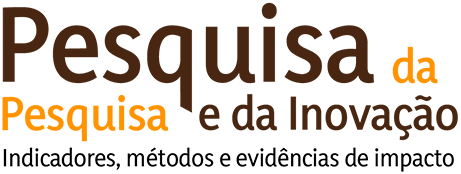By Amâncio Jorge de Oliveira, professor at the Institute of International Relations at USP, Guilherme Ary Plonski, professor at the Institute of Advanced Studies at USP, and Sérgio Salles-Filho, professor at the Institute of Geosciences at Unicamp. Click to read the article on the Jornal da USP website.
Brazil has a vibrant and internationally recognized science and innovation ecosystem. The country is supported by research foundations throughout the national territory, a national postgraduate system responsible for the vast majority of national scientific production, well-positioned public universities (state and federal) in international rankings, a prominent position in scientific article production, and courses ranked among the best in the world.
However, there is no guarantee that this system cannot face concerning setbacks. From time to time, signs of risk emerge. The most imminent, which has been mobilizing the scientific community of São Paulo and the country, concerns the possibility of budget cuts to Fapesp.
Recurring risks include the interruption of critical programs such as forest monitoring, actions against the autonomy of public universities, brain drain of researchers to other countries, devaluation of the careers of professors and researchers, campaigns of disbelief in science, among others.
There is no single antidote capable of neutralizing the different fronts of attacks on Brazilian science. It is necessary to act on all these fronts. But there is one action that can serve as an important protective element for science and the national ecosystem.
This is the establishment of centers and programs for the science of science, which are increasingly present and important in various countries. The Research on Research Institute (UK), Institute of Science and Technology Policy (George Washington University), Science of Science and Innovation Studies (Northwestern University), and the Centre for Science and Technology Studies (University of Leiden) are some examples. Others are emerging as it becomes evident that studies on the impact of science on societies need to be systematic rather than occasional.
A center for the science of science uses scientific methods to monitor the conception, execution, and impacts of scientific programs and policies. It strives to deepen knowledge about how research ecosystems function and, based on this knowledge, contributes to enhancing the effectiveness and positive impacts of research on social, economic, environmental, and intellectual levels. Therefore, it is about creating evidence to demonstrate, communicate, and expand the impacts of the benefits of science and research to society.
Of course, the funding institutions themselves have instruments to monitor the multiple impacts of science. A good example was the study produced by Fapesp, which mapped the impacts of the research sponsored by the institution on the production of public policies in other countries and international organizations. Another good example is the monitoring of the impact of research investments on the generation of new companies. These are fundamental evaluations that must continue to be implemented. The greatest challenge arises from the fact that science of science initiatives are available in Brazil but are arranged in a fragmented manner, without the necessary scale and reach.
The contribution of centers devoted to the science of science would be the possibility of conducting studies on the interrelationship between various research funding instances, as well as comparison with international practices. It also allows the evaluation of the interrelationship between various dimensions of scientific practice, such as funding, inclusion, evaluation practices, career models, institutional designs of scientific organizations, and so on. Programs of this nature are also known as “meta-research” or “meta-science.”
The science of science would also make a decisive contribution to communication with society. Translating how science works and its impacts and benefits to a broad audience, in appropriate language, is an inseparable part of such centers.
Science urgently needs to present itself to society in a different way. It is not enough to say that it is important and that those who reject it are denialists, flat-earthers, and other adjectives that serve more to distance than to bring closer. Favorable arguments exist and are convincing. They are found in the meeting of science with society. It is necessary to study them, discover them, and communicate them adequately and systematically.


